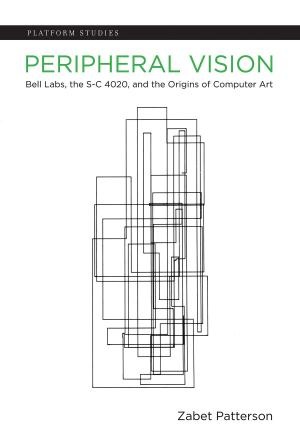Open Minds
The Social Making of Agency and Intentionality
Nonfiction, Health & Well Being, Psychology, Neuropsychology, Cognitive Psychology| Author: | Wolfgang Prinz | ISBN: | 9780262300940 |
| Publisher: | The MIT Press | Publication: | March 16, 2012 |
| Imprint: | The MIT Press | Language: | English |
| Author: | Wolfgang Prinz |
| ISBN: | 9780262300940 |
| Publisher: | The MIT Press |
| Publication: | March 16, 2012 |
| Imprint: | The MIT Press |
| Language: | English |
A novel proposal that the cognitive architecture for volition and cognition arises from particular kinds of social interaction and communication.
In Open Minds, Wolfgang Prinz offers the novel claim that agency and intentionality are first perceived and understood in others, and that it is only through practices and discourses of social mirroring that individuals come to apply these features to themselves and to shape their architectures for volition and cognition accordingly. Developing a (social science) constructive approach within a (cognitive science) representational framework, Prinz argues that the architectures for agency (volition) and intentionality (cognition) arise from particular kinds of social interaction and communication. Rather than working as closed, individual systems, our minds operate in ways that are fundamentally open to other minds.
Prinz describes mirror systems and mirror games, particular kinds of representational mechanisms and social games that provide tools for aligning closed individual minds with other minds. He maps the formation of an architecture for volition, addressing issues of agency and intention-based top-down control, then outlines the ways the same basic ideas can be applied to an architecture for cognition, helping to solve basic issues of subjectivity and intentionality.
Addressing the reality and efficacy of such social artifacts as autonomy and free will, Prinz contends that our beliefs about minds are not just beliefs about their workings but powerful tools for making them work as we believe. It is through our beliefs that our minds work in a particular way that we actually make them work in that way.
A novel proposal that the cognitive architecture for volition and cognition arises from particular kinds of social interaction and communication.
In Open Minds, Wolfgang Prinz offers the novel claim that agency and intentionality are first perceived and understood in others, and that it is only through practices and discourses of social mirroring that individuals come to apply these features to themselves and to shape their architectures for volition and cognition accordingly. Developing a (social science) constructive approach within a (cognitive science) representational framework, Prinz argues that the architectures for agency (volition) and intentionality (cognition) arise from particular kinds of social interaction and communication. Rather than working as closed, individual systems, our minds operate in ways that are fundamentally open to other minds.
Prinz describes mirror systems and mirror games, particular kinds of representational mechanisms and social games that provide tools for aligning closed individual minds with other minds. He maps the formation of an architecture for volition, addressing issues of agency and intention-based top-down control, then outlines the ways the same basic ideas can be applied to an architecture for cognition, helping to solve basic issues of subjectivity and intentionality.
Addressing the reality and efficacy of such social artifacts as autonomy and free will, Prinz contends that our beliefs about minds are not just beliefs about their workings but powerful tools for making them work as we believe. It is through our beliefs that our minds work in a particular way that we actually make them work in that way.















